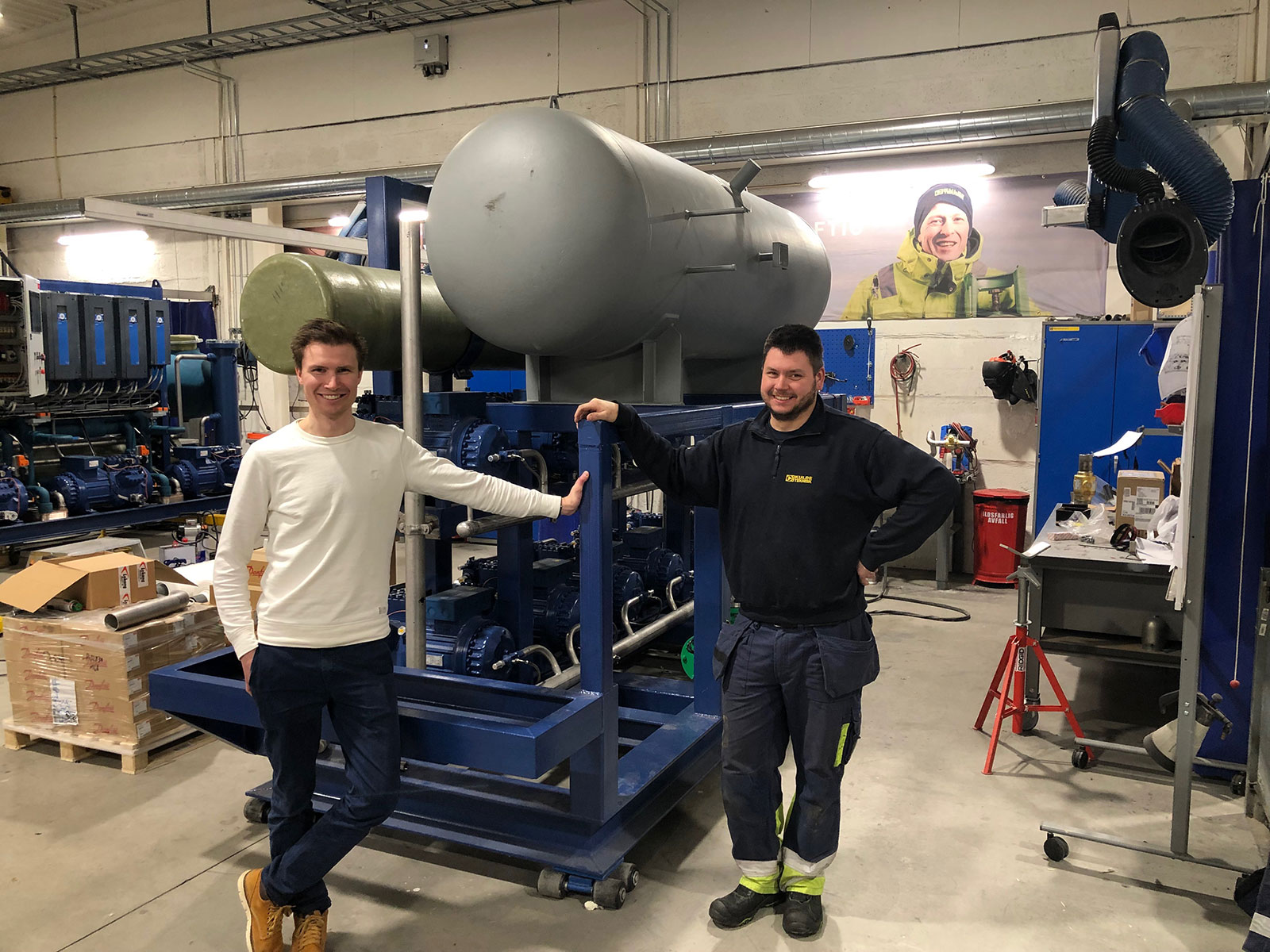PTG Kuldeteknisk has been awarded a contract for the development and delivery of cooling systems for particle detectors at CERN in Switzerland.
“This is one of the most special cooling purposes we have ever had,” says technical manager Frode Berg.
PTG Kuldeteknisk long experience with CO2 as a refrigerant was emphasized when CERN chose a supplier.
Particle accelerator
Particle accelerators use electrical power to move electrically charged particles at high speeds close to the speed of light. The purpose of the largest particle accelerators is to study the interactions of the particles as they collide with each other in order to probe the mysteries of the universe. The
Large Hadron Collider (LHC) at CERN is the world’s largest and most powerful particle accelerator. It runs in a 27-kilometer circular tunnel on the border between France and Switzerland, and is equipped with four large particle detectors situated around the ring. These are very sophisticated devices that measure the properties of particles emerging from the collisions.
Large energy requirements require cooling
Thousands of silicon sensors are at the core of the two largest LHC detectors – ATLAS and CMS. They dissipate up to a few-hundred kW during operation, but in order to minimize damage induced by the high-energy particles from the collisions, they must also be kept at temperatures well below 0 °C.
Two-phase pumped loops of CO2 are used in the core of the detectors to remove the dissipated heat and keep the sensors cold. Until now traditional chillers operating synthetic refrigerants have been used to cool down the CO2 pumped to the detector. For the next generation of detectors, it has been decided to migrate towards natural refrigerants for these “upstream” chillers.
CO2 comes into its own
There are many special challenges with this plant that require special solutions. CERN already uses CO2 as a refrigerant and was determined to focus on a solution with this refrigerant. Requirements for temperatures below ‑50ºC and pipe systems going 100m into the ground are some of the technical reasons for choosing the refrigerant. These are coupled to CERN’s global strategy of reducing the organization’s environmental footprint.
Designed and manufactured in Tromsø
PTG has production of temperature and energy solutions both in Tromsø and in Malmefjorden (Molde). It is with PTG Kuldeteknisk in Tromsø that these special plants are designed and manufactured. According to project manager Martin Corneliussen, work is now underway on designing the system, and delivering the first rigs are to be completed in the beginning of 2020.
Close cooperation with the client and NTNU
Development Manager at PTG Kuldeteknisk Yves Ladam has worked closely with the client and NTNU to solve the special challenges. According to Yves Ladam, the facilities consist of several non-traditional solutions that have not been used before. A fruitful collaboration so far.
CERN
The European Organization for Nuclear Research is an international organisation for particle physics research. CERN’s operations are concentrated on particle physics and comprise the world’s largest research centre in these disciplines.
The centre is located on Swiss-French border near Geneva airport. At the research centre is the Large Hadron Collider, a huge particle accelerator that has been the Laboratory’s flagship facility since research began there in 2010.
CERN was established in 1954 by 12 countries in Europe. Today, the organization has over 20 member countries, around 2,600 full-time employees plus nearly 14,000 scientists and engineers from over 500 universities and 80 nations.

The contract for the development and delivery of cooling systems for particle detectors at CERN in Switzerland is a very exciting project for PTG. Project manager Martin Corneliussen (left) and project engineer Cato Kristiansen are responsible for the project. Technical manager Frode Berg and development manager Yves Ladam have been important contributors in the development of the project.

